Smoking Kratom: Why It's Unsafe and Better Alternatives to Consider
Smoking Kratom: Why It's Unsafe and Better Alternatives to Consider

Kratom, a plant native to Southeast Asia, has attracted attention for its potential pain-relieving, mood-boosting, and energy-enhancing effects. However, before delving into its uses, it's crucial to understand the different ways people consume it and why one particular method – smoking – is strongly discouraged.
Here's a quick overview of Kratom:
- Origin: Leaves of the Mitragyna speciosa tree, native to Southeast Asia.
- Active Ingredients: Alkaloids, particularly mitragynine, which interact with opioid receptors in the brain.
- Potential Effects: Pain relief, anxiety reduction, mood elevation, increased energy, depending on dose and strain.
Common methods of consumption include:
- Oral: Capsules, powder mixed with liquids, tea.
- Sublingual: Holding powder under the tongue.
- Chewing: Raw or dried leaves (less common).
However, some people want to explore smoking Kratom. But this is a dangerous and ineffective practice for several reasons:
- High heat
- Increased risk of lung damage
- Potential addiction and dependence
- Unpredictable dosage
What Happens When You Smoke Kratom?
While some individuals resort to smoking Kratom powder or dried leaves, it's important to understand that this method is strongly discouraged due to its ineffectiveness and potential dangers. Here's a breakdown of why smoking Kratom isn't advised:
Short-term Effects
- Rapid absorption: Due to direct inhalation, the effects of smoking kratom hit much faster and stronger than other methods, increasing the risk of overdose and negative side effects.
- Opioid-like effects: Kratom binds to opioid receptors in the brain, leading to pain relief, euphoria, relaxation, and decreased anxiety.
- Stimulant-like effects: In low doses, kratom can act as a stimulant, boosting energy, alertness, and sociability.
- Negative side effects: These include nausea, vomiting, constipation, dry mouth, sweating, itching, increased heart rate, agitation, and hallucinations.
Long-term Effects
- Addiction: Regular use can lead to dependence and withdrawal symptoms like muscle aches, insomnia, and anxiety when stopping.
- Lung damage: Smoking irritates the lungs and can cause respiratory problems like bronchitis and pneumonia.
- Liver damage: Kratom can strain the liver, increasing the risk of liver damage, especially with prolonged use.
- Mental health problems: Kratom use has been linked to anxiety, depression, and psychosis.
Additional Risks
- Unpredictable dosage: The heat from smoking can alter the potency of kratom, making it difficult to control the dose and increasing the risk of overdose.
- Contamination: Smoked kratom may be contaminated with harmful chemicals or bacteria from the burning process.
- Mixing with other substances: Combining kratom with alcohol or other drugs can be dangerous and even deadly.
Smoking Kratom is a risky practice with uncertain effects and significant health concerns. Opt for safer methods like capsules, liquids, or tea, and always prioritize responsible, informed use of this potent substance.
The Risks of Smoking Kratom
While some seek Kratom's potential benefits through smoking, this dangerous practice poses significant health risks and offers dubious benefits. Let's delve into why smoking Kratom is strongly discouraged:
Health Hazards
Lung Damage: The most immediate threat comes from inhaling hot particles. These can irritate and damage delicate lung tissue, leading to:
- Bronchitis: Inflammation of the bronchial tubes, causing coughing, wheezing, and shortness of breath.
- Scarring and lung damage: Over time, the constant irritation and inflammation can cause scarring in the lungs, impacting lung function and reducing oxygen intake. This can significantly impact physical health and quality of life.
- Increased risk of infection: The inflamed and irritated airways are more susceptible to bacterial and viral infections like pneumonia, making smokers more vulnerable to respiratory illnesses.
- Chronic cough and irritation: Inhaling hot kratom smoke directly irritates the delicate lining of the respiratory tract, leading to persistent coughing and inflammation. This can progress to chronic bronchitis and, in severe cases, emphysema.
Cardiovascular Concerns: Kratom, even in other forms, can impact heart rate and blood pressure. Smoking adds another layer of risk, potentially leading to:
- Tachycardia and hypertension: The rapid absorption of kratom alkaloids through smoking can cause a rapid rise in heart rate and blood pressure, putting strain on the cardiovascular system. This can increase the risk of heart attack, stroke, and arrhythmias, especially in individuals with pre-existing heart conditions.
- Palpitations: Irregular and unsettling heartbeats, further raising anxiety and discomfort.
- Myocardial infarction (heart attack): The increased heart rate and blood pressure combined with the potential blood-clotting effects of kratom can create a perfect storm for a heart attack. This risk is further amplified with prolonged smoking and pre-existing conditions.
Mental Health: Smoking Kratom can also affect your mental health leading to:
- Anxiety and panic attacks: The intense and unpredictable effects of smoked kratom can trigger anxiety and panic attacks, especially in individuals susceptible to these conditions. This can significantly impact mental well-being and daily functioning.
- Psychotic episodes: In rare cases, kratom use has been linked to psychotic episodes, especially in individuals with a family history of mental illness. Smoking, with its faster absorption and higher potency, may further increase this risk.
Addiction and Dependence: The rapid delivery of Kratom through smoke can intensify the risk of addiction and dependence compared to slower methods like oral ingestion. This can lead to:
- Compulsive use: Inability to control Kratom use despite negative consequences.
- Severe withdrawal symptoms: Smoking kratom leads to rapid dependence due to its high bioavailability. Stopping after regular use can trigger severe withdrawal symptoms such as muscle aches, chills, insomnia, anxiety, and depression, making it difficult to quit.
- Increased risk of relapse: The intense cravings and withdrawal symptoms experienced after quitting smoking kratom significantly increase the risk of relapse and continued use.
Unpredictable Overdose
Unlike capsules or measured doses, smoking makes it difficult to gauge the amount of Kratom consumed. This significantly increases the risk of:
- Acute overdose: Consuming too much Kratom quickly, leading to potentially fatal respiratory depression, seizures, and coma.
- Chronic toxicity: Repeatedly exceeding safe levels can cause liver damage, kidney problems, and even psychosis.
Additional Concerns
Unregulated substance: Lack of regulation means the quality and purity of kratom are not guaranteed, increasing the risk of exposure to contaminants and adulterants.
Mixing with other substances: Combining kratom with alcohol or other drugs can have unpredictable and potentially dangerous interactions, amplifying the risks of both substances.
Smoking Kratom is a gamble with your health. Opt for a smoke-free path to explore Kratom's potential – your lungs and overall well-being will thank you.
Is it safe to Vape Kratom?
While some individuals attempt to inhale Kratom through vaporizers, using Kratom extracts or powders for vaping is strongly discouraged due to a significant lack of research and potential health risks.
- Vaporizing Kratom powders: Individuals may attempt to directly vape powder in refillable atomizers, exposing themselves to unfiltered plant material and potentially harmful contaminants.
- Vaping Kratom extracts: Concentrated Kratom extracts are sometimes used in refillable atomizers or pre-filled cartridges, potentially delivering a more potent but unregulated dose.
Lack of Research
There is virtually no scientific research on the safety or health effects of vaping Kratom. This lack of data leaves users navigating uncharted territory with potentially dire consequences. The vaporization process can create unknown byproducts and chemical transformations within the Kratom material. These potentially harmful substances could have unpredictable effects on the lungs and overall health.
Potential Dangers
- Lung Damage: Inhaling any foreign particles, including heated plant material and unknown byproducts, can irritate and damage lung tissue, leading to respiratory problems like bronchitis and inflammation.
- Addiction and Dependence: The rapid delivery of Kratom through vaping can heighten the risk of addiction and dependence compared to slower methods like oral ingestion.
- Overdose Risk: The unregulated nature of vaping Kratom makes it difficult to control dosage, increasing the risk of consuming dangerous amounts, leading to potential overdose and organ damage.
Vaping Kratom is a gamble with your health fueled by the absence of research and surrounded by potential dangers. Step away from the vaporizer and opt for smoke-free Kratom experiences – your lungs and overall well-being will thank you.
Safer Alternatives to Vaporizing and Smoking Kratom
While vaporizing and smoking Kratom may be an option for some individuals, it is generally not considered a safe or effective method of consumption. Instead, consider alternative methods such as using kratom powder, capsules, or extracts. These methods are generally regarded as safer and more efficient ways to consume kratom.
- Kratom powder: One of the most common and versatile methods is using kratom powder. You can mix the powder with water to create a kratom tea. This involves boiling the powder in water for around 15-20 minutes, then straining the liquid to remove any solids. The resulting tea can be consumed hot or cold. You can read more about how to use Kratom powder.
- Capsules: Kratom capsules provide a convenient and precise way to consume kratom. The powder is pre-measured and encapsulated, allowing for easy ingestion. Capsules are available in various strengths and sizes, making dosage control straightforward.
- Extracts: Kratom extracts are highly concentrated forms of kratom that are derived from the leaves. They are available in liquid or powder form. Extracts are typically more potent than regular kratom powder, so they should be used with caution and in smaller doses.
Other methods of consumption include mixing kratom powder with smoothies or food, commonly referred to as a kratom smoothie. This can help mask the taste of kratom, which some find unpleasant. Another method is the toss and wash technique, where you place the desired dose of kratom powder in your mouth and wash it down with a beverage. However, it's important to note that the taste of kratom can still be strong with these methods.
Buy Kratom Online
If you're looking to try kratom for yourself, whether it's in the form of leaves, capsules, extract, or powder, your quest concludes right here with Kratom Country.
Since 2010, Kratom Country has remained committed to providing excellent products, outstanding customer service, and free shipping on qualifying orders.











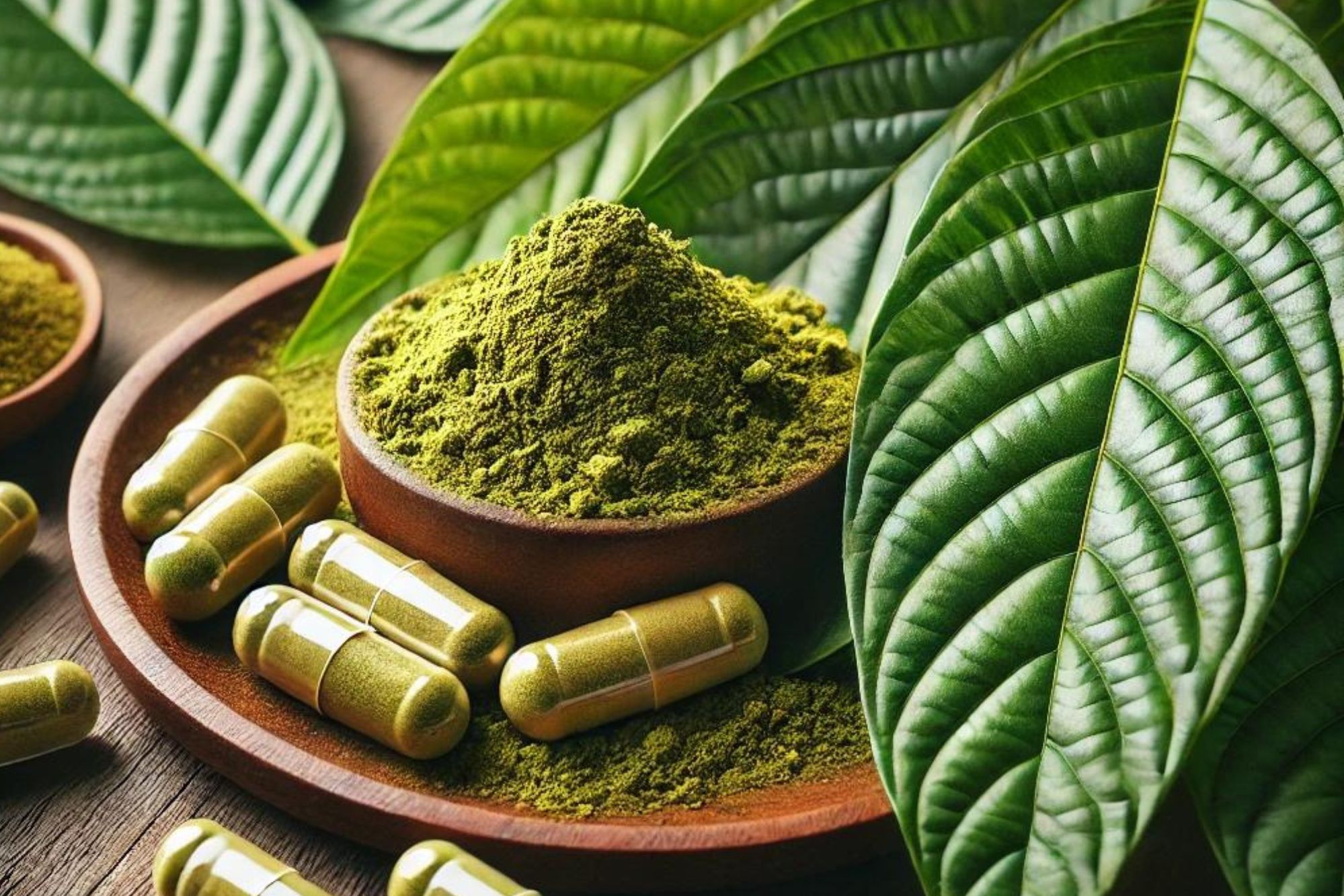
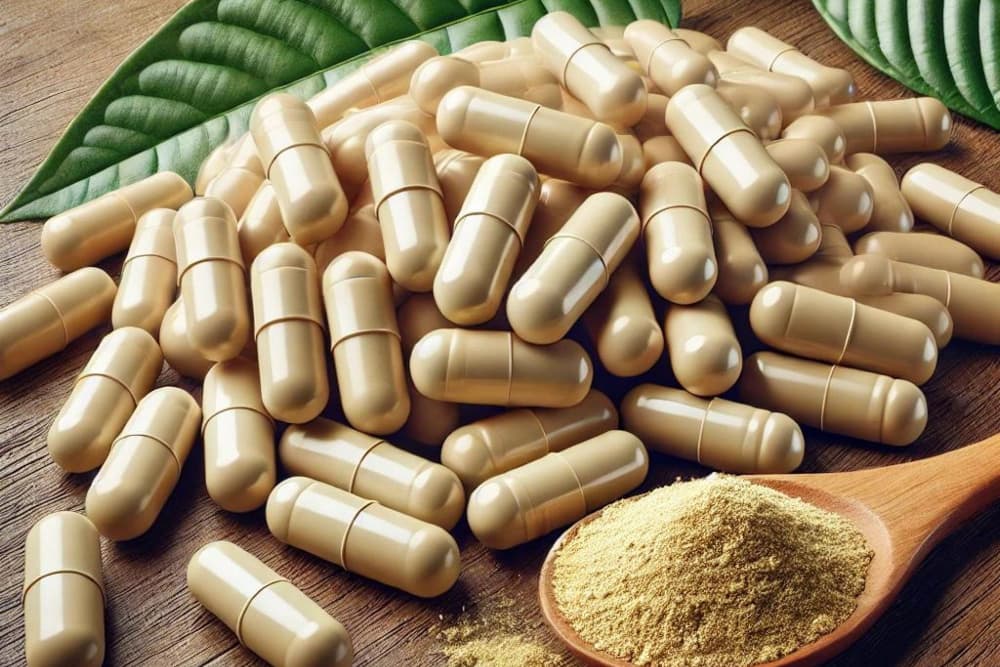
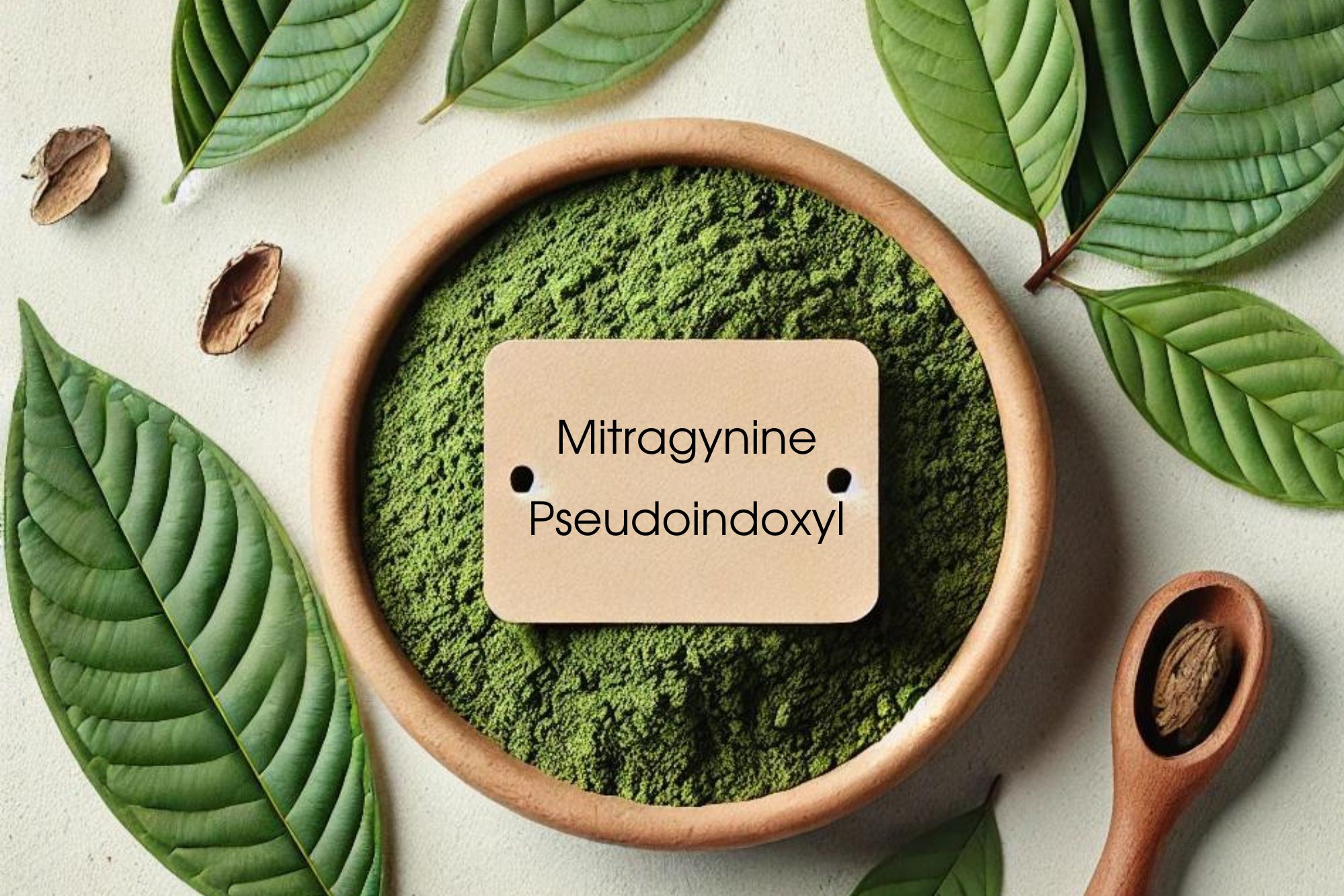
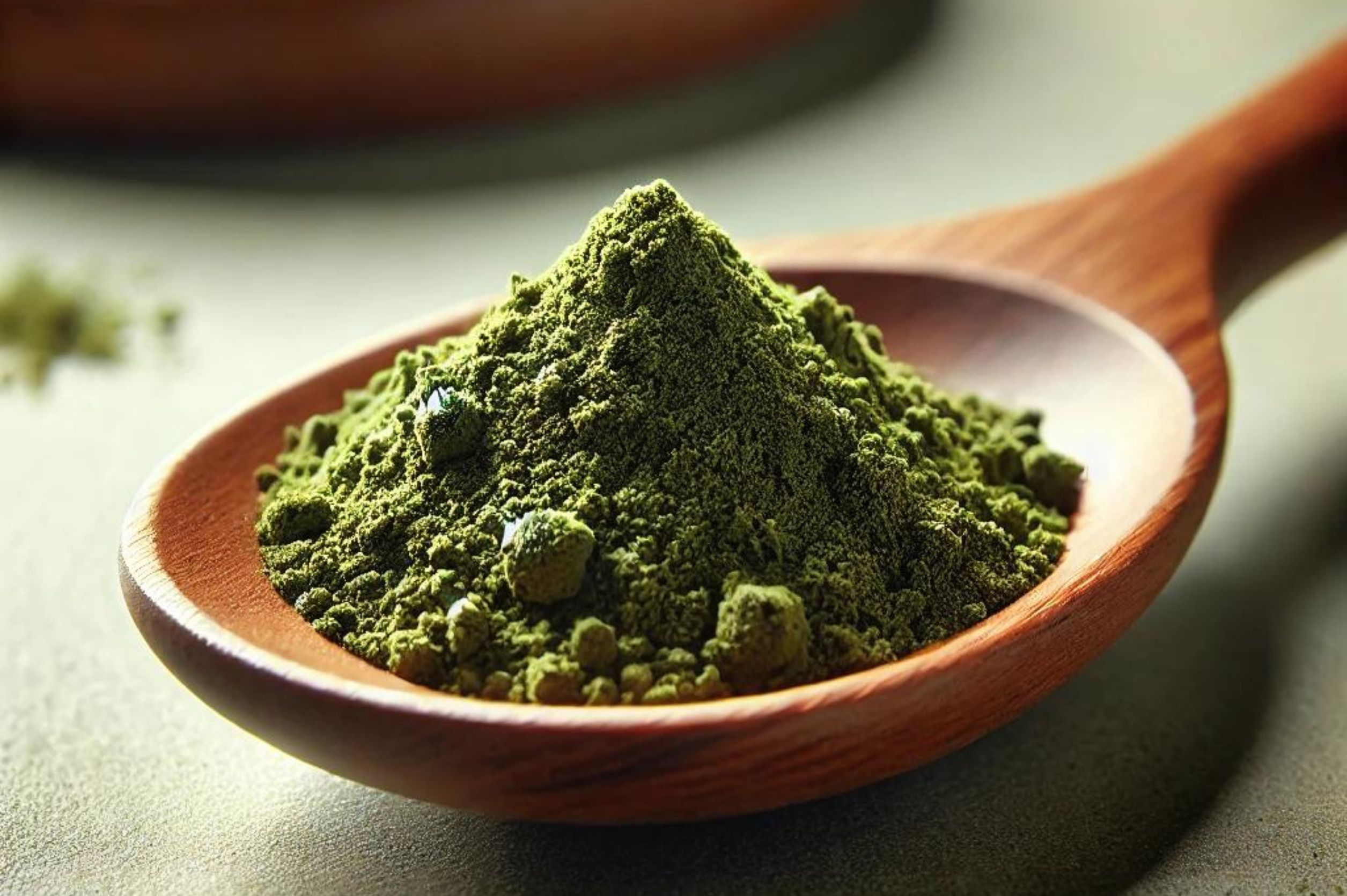
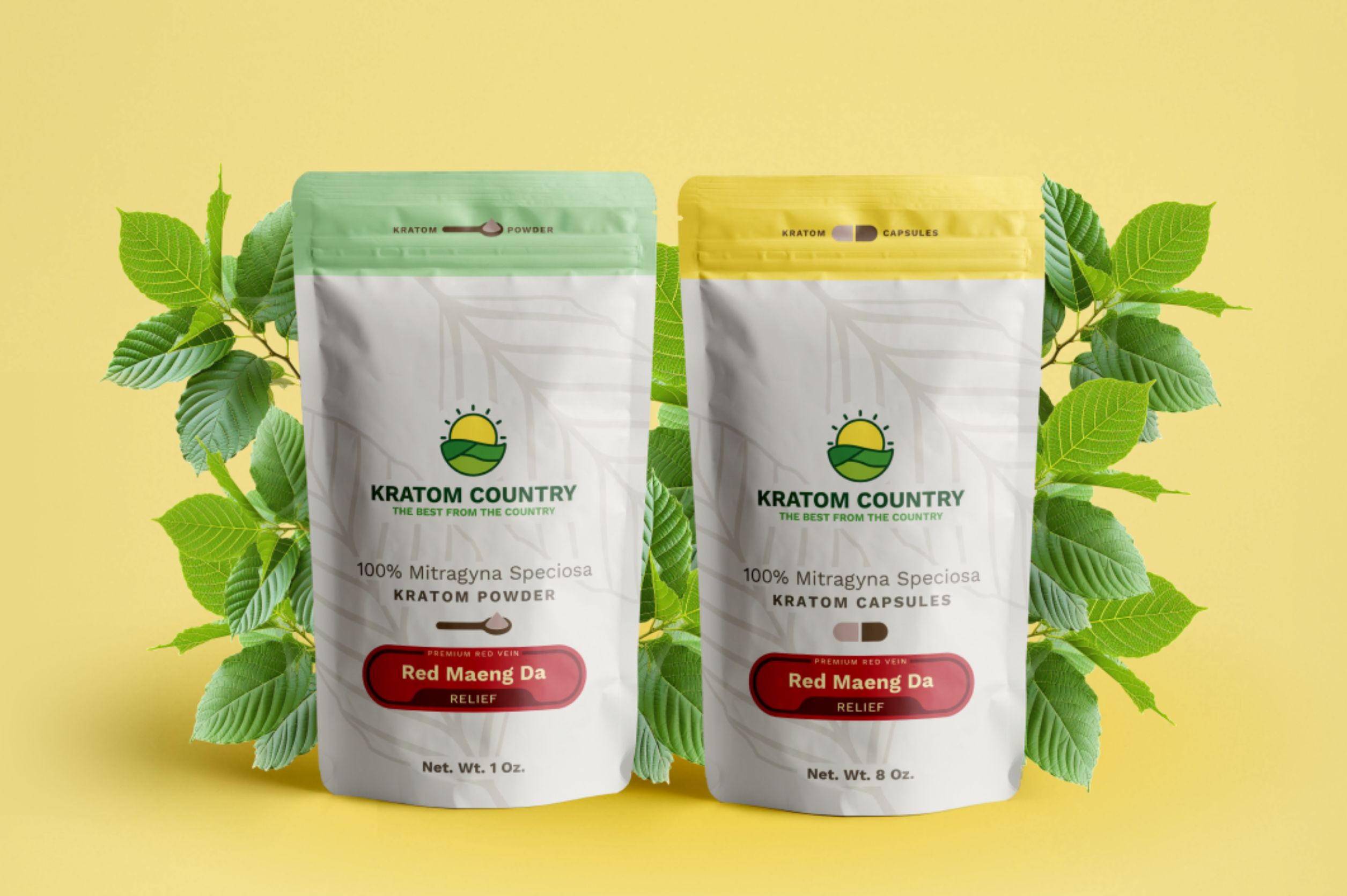


Comments